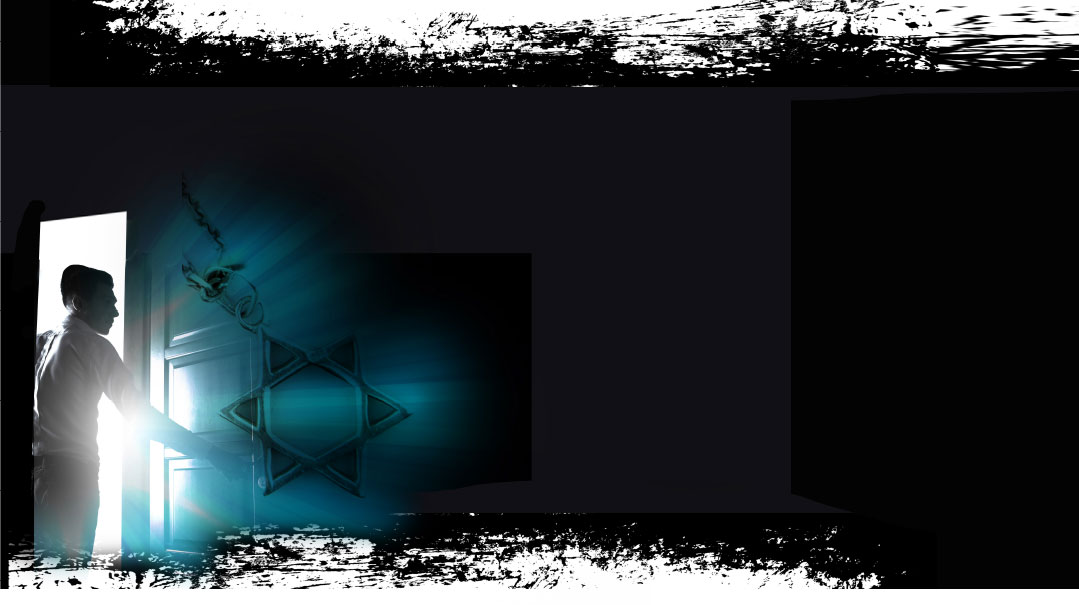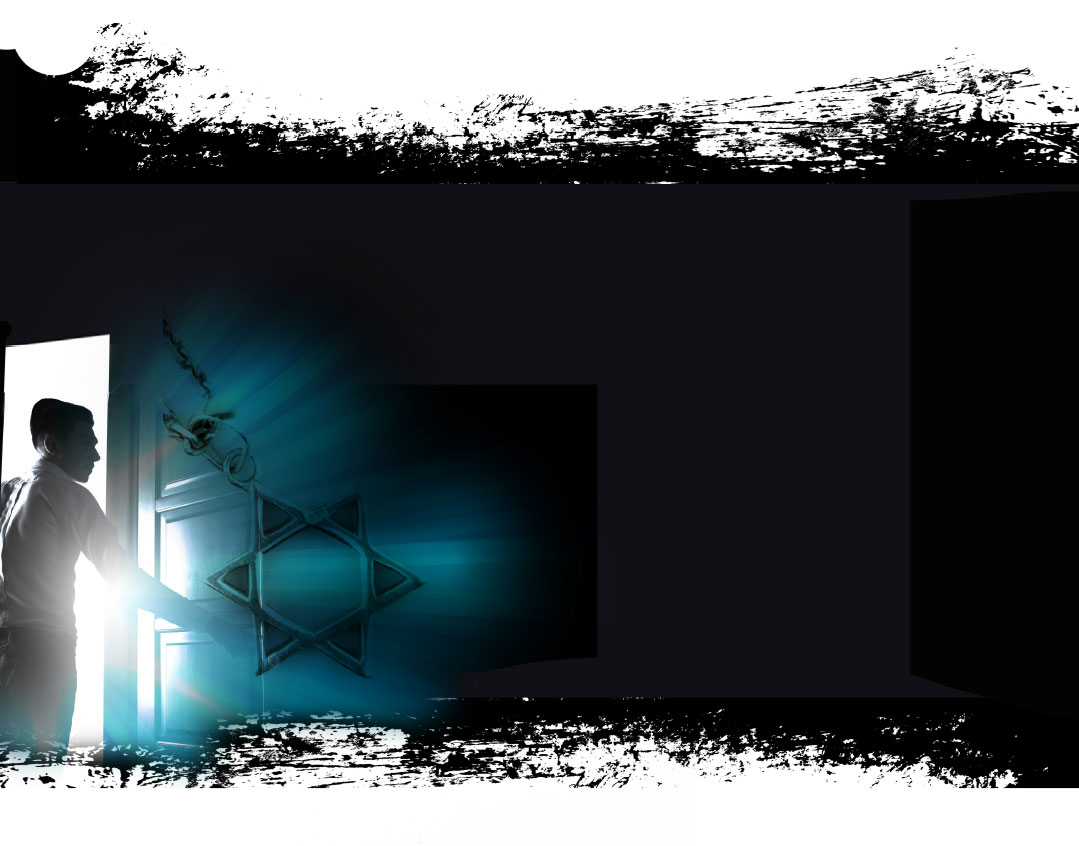Send Them Off as Jews: Chapter 8
| January 6, 2021“You know,” I tell them, “what’s important now is just being here”

I started writing this series about a year and a half ago. Since then, our experiences with the end of life have come a little closer to home — and become more painful.
Most people probably do not want to envision what the end of their life will look like. But if you could convince someone to picture what they would want at that time, one of the first words you would probably hear is “peaceful.” Hospice exists to provide, when possible, a peaceful end-of-life experience: days in which the person is surrounded by family, free of pain, and can live each precious day with calm and appreciation.
The pandemic brought many tragedies and losses. One of them is that this “peaceful” end of life often became unattainable. We heard, instead, of the end coming suddenly, of people leaving the world alone without family nearby, of families denied some of the Torah’s crucial framework for aveilus and nechamah.
I hope that this series has provided at least some perspective on what happens at the end of life, and perhaps some balm for emotions that are still raw. I have no prophetic words to explain why we had to experience this particular layer of suffering. But if Hashem saw fit to teach us new lessons about the end of life, let us try to learn them. After all, learning about the end of life means learning about life itself.
I wish I had a specific story to illustrate the following point, but it is so common that a generic story will fit any number of families I have seen.
Sarah is at the end of a long illness. After months of hospital visits, treatments, late night phone calls, and unending care and hishtadlus by her children, it is now only a matter of time. There is nothing left for medical science to do.
Sarah’s family is congregated in her room, assuming the positions and roles that have by now become familiar to them. When I visit them for the first time in the late afternoon, we talk about the basics: what to expect, what halachos to be aware of. It is clear that they have had a long day and are preparing to head home. But first they want to know if there is anything more they should do.
“You know,” I tell them, “what’s important now is just being here.”
A look crosses their faces — a look that tells of pressures at home, of missed appointments, of all the time they have already put into their mother’s care for these past months. And instinctively, they turn to look at Sarah, who is sleeping peacefully but is no longer communicating or responding. The obvious question hangs in the air: Just being here? For what purpose?
“We don’t know how much longer she has,” I persist, as gently as I can. “But this is your last opportunity while she’s here to fulfill kibbud eim. And at this moment, your mitzvah of kibbud eim is just to be present. I can’t tell you if she hears you, but I have seen enough to know that she knows you are here. Let her feel your presence.”
They are skeptical, I know. They usually are. But I also know that they’ll thank me when it’s over.
Halachah does not allow us to leave the bedside of someone who is a goseis, but the importance of presence goes well beyond that. We do not express our love and connection to someone only by doing things for them; we express it best by being there with them, even when there is nothing that needs doing or saying. It is sometimes the greatest gift we can ever give. To know that the people you have touched in this world are with you as you leave is certainly the greatest gift of all.
Before there was COVID, we were generally very bad at appreciating the importance of being present. We thrived and found status in being busy, and when we were not actually busy, we told ourselves we were by finding ways to be distracted. But then we were forced to be present for each other in ways we never imagined simply because there was nowhere else to go. It is a gift many of us have treasured.
Ironically, just as we were learning how to be present for each other, some were deprived of that gift at the end of their lives. But now we know how valuable it is. There will always be activities competing for our attention, and there will always be projects left undone. But the moments — whether they are at the end of life or in its prime — don’t come back.
Let’s turn back the story a couple of days. Sarah’s family calls from the ICU. Their mother has returned to the hospital so many times that they have lost track, but this time, the doctors have told them there are no reasonable treatment options left. They have started to hear the word hospice. They are worried, but that pales in comparison to their sense of guilt.
“We understand what the doctors are saying,” they say when they call. “But doesn’t hospice mean that we are giving up on her? Isn’t there something else we can pursue? She was always a fighter. We can’t imagine that we would stop fighting for her.”
They are asking important questions. Especially in the current medical environment, there are many situations when it is appropriate, and an obligation, not simply to accept what you are told is impossible.
But in a situation where halachah says that nothing more should be done, we need to accept that “doing nothing” is not the same as “giving up.”
Hospice, by its technical definition, means that the underlying disease is no longer being treated. Some people find this existentially impossible to accept. But others come to understand, as I have expressed to many people, that Hashem is the Author of our book, and He writes the last chapter in the same way He wrote all the chapters that came before it. There is a time to act, and there is a time to understand that Hashem is holding us in His hand. Hashem wants us to know how to live in both ways.
The truth is that we all do this every day. Sleep, our chachamim tell us, is akin to death, and it is a state of being to which we willingly surrender ourselves every day. How do we do this? Because we know, and say, that b’yadcha afkid ruchi — I place my spirit in Your hand, Hashem. We are not giving up; we are handing over the script.
And if I could draw one more lesson that COVID has taught our hyperactive world, it would be the virtue — the necessity — of patience. We put all our kochos into so many incredible accomplishments, but we cannot forget that there are times (perhaps it is all the time) when Hashem sees fit to remind us that He has a destiny for us to fulfill that all the hishtadlus in the world cannot change. We write as much of the book as we can, but we are not the Author. Patience is not just a virtue; it is emunah.
Our experience with COVID has forced us all to bow our knees in what feels like surrender. But if we do it with wisdom, we will realize that we are not giving up. We are seeing, though we do not understand how and why, the curtain pulled back a little more, seeing the way Hashem is moving the world toward its destiny.
“For to Me, every knee will bow — this refers to the day of death.” Coming face to face with the end of life strips us of all our pretenses of pride. But bowing your knee before Hashem does not mean you are giving up. It means you are giving yourself into the care of your Creator.
And at the end of life, like all the days that come before it, there is nowhere else we would prefer to be.
THE END
Rabbi Daniel Rose is the rabbi at Bnai Jacob Shaarei Zion Congregation in Baltimore, Maryland. He used to serve as the chaplain and director of Jewish Hospice Services for Seasons Hospice and Palliative Care of Maryland. He is also the author of Building Eternity: A New Perspective on the Meaning of Marriage (Menucha Publishers).
(Originally featured in Mishpacha, Issue 843)
Oops! We could not locate your form.



